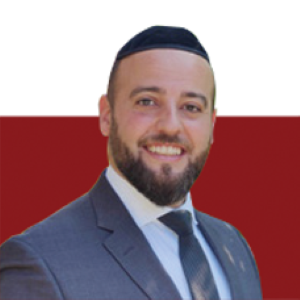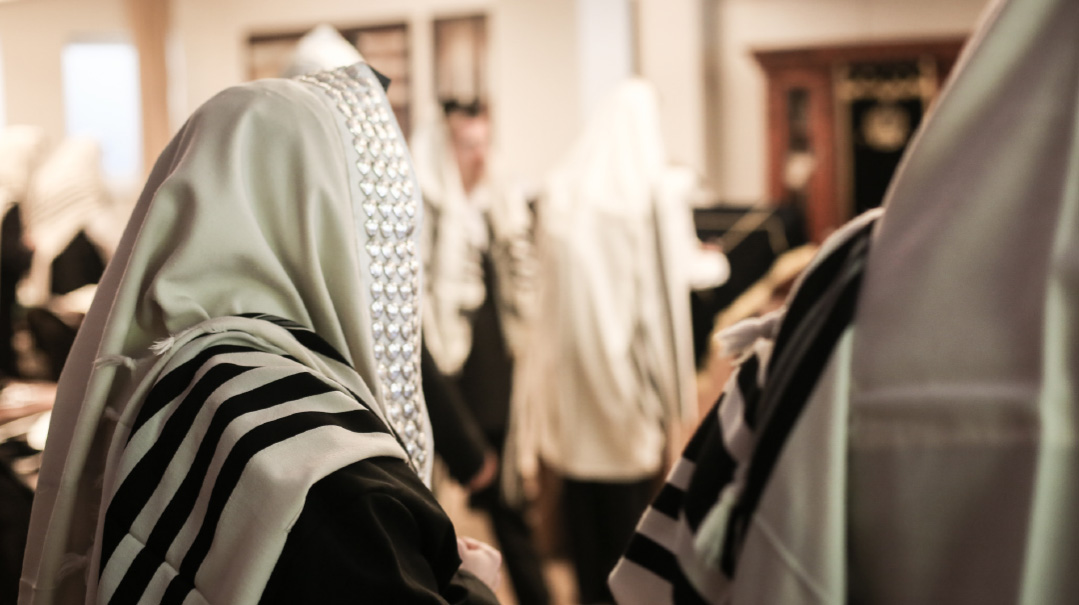Staying Power

How can we translate the energy and arousal of the Yamim Noraim into long-lasting change?
As told to Sarah Massry
T
here’s so much talk this time of year about growing and doing teshuvah, but not all of us can say we’ve seen real change resulting from our Elul and Tishrei kabbalos. How can we translate the energy and arousal of the Yamim Noraim into long-lasting change?
Let’s start by examining what usually motivates people when they attempt to change.
- The selfish motive: People say I get angry, impatient, or insensitive. I think they’re nitpicking or overly sensitive in their assessment, but I want to change — not because I exhibit this behavior, which is beneath me, but just so they won’t complain about it anymore.
- Sacrificial motive: My wife says I can’t continue like this and my kids say this is not okay. I’m changing to keep the peace because I am a tzadddik. The problem is not necessarily me, but I’ll sacrifice for them.
- The disgust motive: I realize the way I am is shameful and disgusting. I can’t live like this anymore. I think I’m disgusting, and others around me think so, too.
- The rock-bottom motive: I hit rock bottom and the desire to change comes from me. (Though this motive often does work, it’s not a necessary step to change. Some people can spend a long time getting to rock bottom, and then remain there for an extended period of time. Everyone agrees that barring extreme circumstances, this should be a last resort.)
All four of these motives usually won’t create lasting change (with the exception of hitting rock bottom, which comes with inherent risks).
Which kind of motive does produce lasting change? One that stems from a person’s sense of intrinsic self-worth.
When a person wants to work on himself, he usually falls into the trap of exclusively focusing on removing a negative aspect from his life. When we speak about growth, all too many of us have an inner dialogue of shame, resentment, and disgust running on a loop. While we’d never call anyone else stupid or ugly, many of us do say that to ourselves, justifying it as “self-awareness.”
Focusing on removing shameful actions won’t address the real problem and won’t create real change.
Often, when I ask people what they want to work through, they tend to answer with the most shameful thing they do. Not to say that they will admit it out loud, but they all agree that is the first thing that comes to their mind: get rid of the behavior that is causing me shame. Any trained ear will pick up that the behavior is usually based on a lack of self-esteem, a lack of confidence, or a lack of love. It is a symptom of how they feel about themselves. They can remove the symptom, but how they feel about themselves will remain the same.
To be clear, I’m not suggesting that we neglect dealing with our aveiros and negative behaviors. What I am saying is that we should approach them from a different perspective. Instead of letting ourselves get caught in a cycle of self-loathing, which ultimately perpetuates the bad acts, which makes us feel worse about ourselves, our aveiros can serve to show us how far we have strayed from our true selves, and how beneath us these behaviors are. We can contemplate our shortcomings through the lens of gauging the enormity of the change we will have accomplished when we replace those behaviors with positive, constructive ones.
Albert Einstein said the definition of insanity is repeating the same process and expecting different results. While we may have made kabbalos year after year without seeing concrete lasting results, the actual way to establish lasting change is to change our pattern of thinking.
There are several crucial points that are important to internalize and consistently review in our quest for lasting change.
I am not my behaviors. I am so much greater.
Consistently dwelling on negative thoughts builds our shameful, despairing side. The only way to draw ourselves out of this negative self-image is by building a different persona for ourselves, which in reality is our true self. We were created b’tzelem Elokim. We are amazing. When we feel disappointed in ourselves, it’s because deep down, we know that we are greater. These actions are beneath us.
We need to give ourselves space and time to beat this into our brains: We have so much intrinsic value just because the Ribbono shel Olam created us.
Negative behaviors need to be replaced, not eliminated.
The only way to permanently eliminate negative behaviors is to replace them. If I’m working on jealousy, I want to learn to be more present and grateful in my life. I want to focus on my family and to be grateful for what I have around me. I want to act like a person who appreciates what I have. When I fill myself up with positive thoughts, I won’t have any room for jealousy.
I was not created or designed to be perfect.
I don’t have all the answers, nor am I supposed to. My job is to show up in the life that Hashem created for me.
There are many people who set out with the goal of “change” and expect things to happen quickly. They expect immediate progress and don’t value the hard work.
We were created imperfect because we were designed to work on ourselves. Once I accept that I wasn’t created to be perfect, I can recognize that tackling the imperfections in my character is my job in This World.
Being hyper-focused on removing negative traits can be counterproductive. If I have a bad middah, getting rid of it instantaneously isn’t a realistic goal. The productive approach would be to realize that my tafkid in life is to constantly work on this middah so that I can become bigger and better than it.
I was working with a boy when his mother asked to meet with me. Her opening bid was impressive.
“I’ve read all your articles and listened to your classes,” she said. “I watched your interview on Coach Menachem five times and it’s really helped me. I’ve worked so hard to accept my child for who he is.”
“That’s incredible!” I replied.
Then she continued. “I know that he’s never going to the yeshivah or university that his brother went to, because he’ll never get in. He will never work with children like his sister does, because he lacks the patience. He won’t have the career or the community influence that my husband and I have, and I’m on board with that. I understand that it’s just not who he is, and I’m fine with that.”
“So what are you doing to build his self-esteem? To build who he is?” I asked.
She thought for a minute and said, “I guess nothing.”
“Then you don’t know who your son is,” I replied. “You’re very well versed on who he’s not, but you don’t know what he can do. You are not accepting who he is. You are accepting who he isn’t.”
This situation is all too common, and we often do this to ourselves. We feel like our avodah is to accept that we’re nothing and to try to stay out of harm’s way by avoiding negative behaviors. So much of what people work on during Elul is eliminating certain behaviors. In reality, though, this is just the yetzer hara’s trick to keep us small-minded. When he successfully directs us to focus on removing the negative behaviors, he knows we’ll be overlooking the most important part of teshuvah: realizing what we actually can become.
Teshuvah isn’t for Hashem; it’s for us. We have to see what has been holding us back from becoming great. We have to do teshuvah for the aveiros we did and realize that we are so much bigger than that.
Ionce had the opportunity to meet with a billionaire, and I said to him, “One of the great parts of owning so many businesses must be that your kids can always be close to you by getting involved.”
“No, my kids start off somewhere else,” he said. “Either in college or at another job. Then, when they have some value to offer, I’ll bring them into my businesses.”
I must have made a face because he commented, “You don’t seem happy with my answer.”
“No, I totally get it,” I responded. “You want them to pave their own way. You don’t want them to feel entitled.”
He smiled and said, “No, that’s not it. You know why I do this? It’s because I want my children to be givers. Of all the wealthy people I know, the biggest givers and pillars of their communities are the ones who felt confident in their own value.
“The ones who were given their wealth on a silver platter are rarely taking responsibility for building and supporting others. But the person who worked hard for what he has doesn’t worry that he will lose out from giving. He’s confident that he can always take the initiative and build more.
“The person who was handed his fortune has no confidence in what he has. He feels lucky — he was born to the right people at the right time — but he doesn’t feel he deserves it.
“Having a lot does not make you a giver,” he concluded. “Being confident in your value is what makes you a giver.”
He explained to his children, “I know that you have strengths to build beyond my wildest dreams. But first you need to be in the right atmosphere to help cultivate those strengths.”
I thought that was so profound. He was setting his children up to struggle because he understood that this is a law of nature that Hashem instilled into the world: Struggle — not its absence — is how we develop who we are and how we feel about ourselves. To simply focus on removing the struggle — as opposed to building who we are through the struggle — is missing the point. The point is to become bigger through the struggles.
When I was living in Eretz Yisrael, every year before Rosh Hashanah I would take my students to my own rebbi, Rabbi Yitzchak Berkovits. He would speak to them, and then I would ask him to give them a brachah for a good new year.
Every year, he would smile and offer the same two-word brachah. He would look at my students and say, “Be big.” Then he would turn to me and repeat it: “Be big.”
Teshuvah is not just about staying away from what makes us feel ashamed and embarrassed. Real teshuvah allows us to become big people.
(Originally featured in Mishpacha, Issue 978)
Oops! We could not locate your form.







